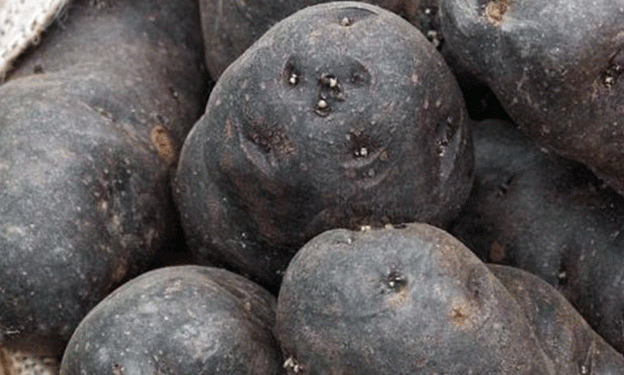In a world where people increasingly prioritize health-conscious food choices, Ravi Prakash Maurya, a former journalist, has turned his attention to agriculture, finding success in growing black potatoes and other nutrient-dense crops. His journey from a journalist in Delhi to a successful farmer in Uttar Pradesh exemplifies the opportunities available in modern agriculture, especially for those willing to innovate and adapt to changing consumer demands.
Ravi Prakash Maurya, originally from Mansoorpur village in Prayagraj, Uttar Pradesh, started his career in journalism after completing a journalism course in Delhi. However, a personal tragedy led him to return to his village, where he decided to follow his passion for farming. With over ten years of experience in media, including working as a feature editor in Madhya Pradesh, Ravi had always been interested in agriculture. His work in farming-related journalism gave him valuable insights, which he later applied when he began farming in 2016.
A Focus on Health-Promoting Crops
Maurya’s decision to grow black crops, such as black potatoes, black rice, and black onions, was driven by his awareness of the increasing incidence of chronic diseases like cancer and diabetes. These crops are known for their high anthocyanin content, a powerful antioxidant that helps detoxify the body by neutralizing free radicals. In addition to their health benefits, these black crops have a strong market presence due to their unique properties and higher nutritional value.
Black potatoes, for instance, have become one of Maurya’s most successful crops. Unlike regular potatoes, black potatoes are rich in antioxidants and have been linked to improved health outcomes. Although they are priced higher than regular potatoes—around ₹80 per kilogram compared to ₹35 for conventional varieties—black potatoes have a growing consumer base. These potatoes, with their deep purple hue, offer more than just visual appeal; they are a functional food that supports overall health.
Expanding Market Reach
Maurya’s innovative farming practices have allowed him to expand his reach beyond his village. His crops, especially black potatoes, are now distributed across 15 states in India. Despite the challenges of producing these specialty crops, such as lower yields compared to conventional varieties, Maurya has managed to maintain a profitable operation by focusing on quality over quantity. He uses organic methods, including cow dung as fertilizer, to grow his crops, ensuring they meet the demand for chemical-free produce.
With an investment of around ₹6,000 per bigha (about 0.4 acres) for growing black potatoes, he harvests around 90 quintals per bigha. Although the yield is slightly lower than that of regular potatoes, the higher market price compensates for the difference, making black potatoes a lucrative option for farmers.
Educating Farmers and Raising Awareness
Beyond his own farming success, Maurya is dedicated to sharing his knowledge with other farmers. He has distributed seeds to thousands of farmers and actively educates them about the benefits of growing black crops. His efforts to raise awareness about the advantages of black rice, black wheat, black garlic, and other crops have helped many farmers diversify their agricultural practices and improve their livelihoods.
Maurya’s commitment to promoting health-oriented agriculture is evident in his ongoing mission to support the fight against diseases like cancer and diabetes through the cultivation of nutrient-rich crops. By focusing on sustainable and health-promoting farming practices, he has not only transformed his own life but also made a significant impact on the agricultural community.
Ravi Prakash Maurya’s transition from journalism to agriculture is a testament to the potential of innovative farming in modern times. By focusing on black crops that offer both health benefits and market value, he has carved out a successful niche in the agricultural sector. His efforts to educate other farmers and promote sustainable practices demonstrate the positive ripple effects that can result from a single farmer’s dedication to his craft. As health-conscious consumers continue to seek out functional foods, the demand for crops like black potatoes and onions is likely to grow, offering further opportunities for farmers willing to innovate.







